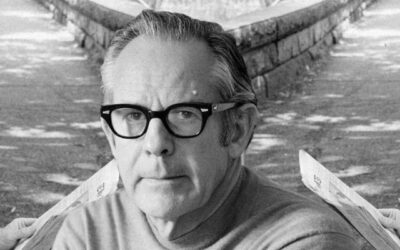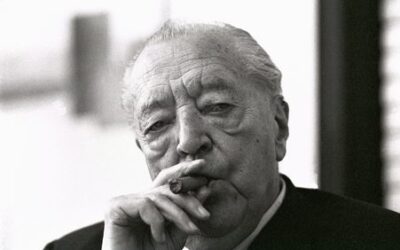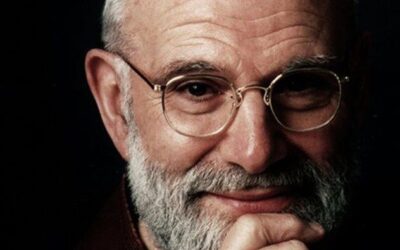Who was Hans-Georg Gadamer?

Hans-Georg Gadamer (1900-2002) was a German philosopher and a leading figure in the field of hermeneutics, the theory and practice of interpretation. His work has had a profound impact on a wide range of disciplines, including philosophy, literary criticism, theology, and the social sciences. Gadamer’s magnum opus, “Truth and Method” (1960), is considered a seminal text in 20th-century philosophy and has shaped the way we understand the nature of understanding itself.
In this comprehensive essay, we will explore Gadamer’s key philosophical ideas, his contributions to hermeneutics, and the enduring relevance of his thought in contemporary intellectual discourse. We will examine how Gadamer’s insights have challenged traditional conceptions of truth, objectivity, and the role of language in shaping human experience, and consider the ways in which his work continues to inspire new avenues of inquiry and dialogue across disciplinary boundaries.
Gadamer’s Philosophical Hermeneutics
2.1. The Centrality of Language and Dialogue
At the heart of Gadamer’s philosophical hermeneutics is the idea that language is not merely a tool for communication but a fundamental medium through which human beings experience and make sense of the world. For Gadamer, understanding is always linguistically mediated and occurs through dialogue, whether with texts, artworks, or other individuals.
Gadamer argues that the meaning of a text or artwork is not fixed or determined solely by the author’s intentions but emerges through the interpretive process itself. This process involves a fusion of horizons between the interpreter’s own historical and cultural context and that of the text or artwork being interpreted.
2.2. The Historicity of Understanding
Gadamer emphasizes the historicity of all understanding, arguing that our interpretations are always shaped by our own historical and cultural situatedness. He rejects the Enlightenment ideal of a neutral, objective standpoint from which to assess meaning and truth, instead recognizing the inevitability of prejudices and fore-understandings in the interpretive process.
However, Gadamer does not see these prejudices as necessarily negative or limiting. Rather, he argues that they are the very conditions of possibility for understanding, providing the initial orientation and framework within which interpretation can occur. The task of hermeneutics, then, is not to eliminate prejudices but to critically examine and revise them in light of new experiences and encounters.
2.3. Truth as Event and the Fusion of Horizons
For Gadamer, truth is not a static property of propositions or a correspondence between language and reality. Instead, he conceives of truth as an event that occurs in the dialogical encounter between interpreter and text or artwork. This event involves a transformation of both the interpreter’s horizon of understanding and the meaning of the text itself.
Gadamer’s concept of the fusion of horizons suggests that understanding is always a productive, creative process in which new meanings emerge through the interplay of past and present, familiarity and strangeness. The goal of interpretation is not to reconstruct the original intention of the author but to participate in the ongoing dialogue that the text or artwork opens up.
Gadamer’s Contributions to Philosophical Discourse
3.1. Challenging the Enlightenment Legacy
Gadamer’s work represents a significant challenge to the Enlightenment tradition in Western philosophy, which emphasized the pursuit of objective truth, the autonomy of reason, and the ideal of the detached, neutral observer. By highlighting the historicity and linguisticality of all understanding, Gadamer calls into question the possibility of a pure, unmediated access to reality.
His hermeneutical approach suggests that our understanding is always shaped by our historical and cultural horizons and that the meaning of texts and artworks cannot be reduced to the intentions of their creators. This insight has had important implications for fields such as literary criticism, where the focus has shifted from uncovering authorial intent to exploring the multiple meanings and interpretations that texts generate.
3.2. The Rehabilitation of Prejudice and Tradition
Gadamer’s positive revaluation of prejudice and tradition stands in stark contrast to the Enlightenment’s suspicion of authority and received wisdom. He argues that our prejudices and fore-understandings are not obstacles to be overcome but the very conditions of possibility for understanding.
Similarly, Gadamer sees tradition not as a constraining force but as a living, dynamic reality that we constantly engage with and interpret in light of our present concerns and experiences. This rehabilitation of prejudice and tradition has had significant implications for fields such as theology and the social sciences, where the role of historical and cultural context in shaping knowledge and practice has come to the fore.
3.3. The Dialogical Nature of Understanding
Gadamer’s emphasis on the dialogical nature of understanding has had a profound impact on contemporary philosophical discourse. His work has inspired a range of thinkers, from Jürgen Habermas and his theory of communicative action to postmodern philosophers such as Richard Rorty and Gianni Vattimo.
Gadamer’s hermeneutics has also had important implications for the practice of dialogue and communication across cultural, religious, and political divides. By highlighting the importance of openness, humility, and a willingness to risk one’s own prejudices in the encounter with others, Gadamer’s thought offers valuable resources for fostering mutual understanding and solidarity in an increasingly pluralistic world.
The Relevance of Gadamer’s Thought in Contemporary Intellectual Discourse
4.1. Hermeneutics and the Human Sciences
Gadamer’s philosophical hermeneutics has had a significant impact on the methodology and self-understanding of the human sciences, from history and sociology to anthropology and cultural studies. His work has challenged the positivist ideal of a value-neutral, objective approach to the study of human phenomena, emphasizing instead the need for a more interpretive, contextual, and dialogical understanding.
Gadamer’s insights have inspired a range of methodological approaches, such as the interpretive sociology of Max Weber and the thick description of Clifford Geertz in anthropology. His emphasis on the fusion of horizons and the productive role of prejudices has also influenced the practice of interdisciplinary dialogue and collaboration, encouraging scholars to engage with perspectives and traditions outside their own disciplinary boundaries.
4.2. Gadamer and the Philosophy of Language
Gadamer’s work has also had important implications for the philosophy of language and the study of meaning. His conception of language as a medium of understanding rather than a mere tool for communication has challenged traditional theories of reference and representation.
Gadamer’s insights have informed the work of philosophers such as Donald Davidson and John McDowell, who have developed more holistic and contextual approaches to meaning and interpretation. His emphasis on the dialogical nature of understanding has also inspired the development of discourse ethics and the study of communication in the public sphere.
4.3. Hermeneutics and the Critique of Modernity
Finally, Gadamer’s thought has played a significant role in the ongoing critique of modernity and its legacy in contemporary philosophy. His challenge to the Enlightenment ideal of objective truth and the autonomous subject has resonated with a range of thinkers, from poststructuralists such as Michel Foucault and Jacques Derrida to critical theorists such as Theodor Adorno and Max Horkheimer.
Gadamer’s hermeneutics has also informed the work of philosophers such as Charles Taylor and Alasdair MacIntyre, who have sought to recover the moral and political dimensions of human understanding in the face of the instrumentalist and individualist tendencies of modern thought. His emphasis on the importance of tradition and the dialogical nature of reason has offered valuable resources for rethinking the relationship between past and present, self and other, in an age of globalization and cultural pluralism.
Legacy of Gadamer
Hans-Georg Gadamer’s philosophical hermeneutics represents a major contribution to 20th-century thought, with far-reaching implications for a wide range of disciplines and intellectual traditions. His work has challenged traditional conceptions of truth, objectivity, and the nature of understanding, emphasizing instead the historicity, linguisticality, and dialogical character of human experience.
Gadamer’s insights have had a profound impact on fields such as literary criticism, theology, and the human sciences, inspiring new methodological approaches and fostering interdisciplinary dialogue and collaboration. His thought has also played a significant role in the ongoing critique of modernity and its legacy, offering valuable resources for rethinking the relationship between reason and tradition, self and other, in an age of cultural pluralism and globalization.
As we continue to grapple with the challenges of understanding and communication in an increasingly complex and interconnected world, Gadamer’s hermeneutics remains a vital source of inspiration and guidance. His emphasis on openness, humility, and the transformative power of dialogue offers a compelling vision of what it means to understand and to be understood, inviting us to engage in the ongoing conversation that is the human quest for meaning and truth.
Read More Depth Psychology Articles:
Taproot Therapy Collective Podcast
Philosophy
Bibliography
Dostal, R. J. (Ed.). (2002). The Cambridge Companion to Gadamer. Cambridge University Press.
Gadamer, H.-G. (1976). Philosophical Hermeneutics. University of California Press.
Gadamer, H.-G. (1989). Truth and Method (2nd ed.). Continuum.
Gadamer, H.-G. (1996). The Enigma of Health: The Art of Healing in a Scientific Age. Stanford University Press.
Grondin, J. (1994). Introduction to Philosophical Hermeneutics. Yale University Press.
Hoy, D. C. (1982). The Critical Circle: Literature, History, and Philosophical Hermeneutics. University of California Press.
Malpas, J., & Gander, H.-H. (Eds.). (2014). The Routledge Companion to Hermeneutics. Routledge.
Palmer, R. E. (1969). Hermeneutics: Interpretation Theory in Schleiermacher, Dilthey, Heidegger, and Gadamer. Northwestern University Press.
Wachterhauser, B. R. (Ed.). (1994). Hermeneutics and Truth. Northwestern University Press.
Weberman, D. (2000). A New Defense of Gadamer’s Hermeneutics. Philosophy and Phenomenological Research, 60(1), 45-65.


























0 Comments